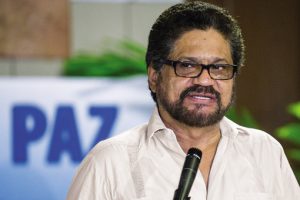
The Obstacles to Political Integration Post-Peace
After three years of negotiations with the Fuerzas Armadas Revolucionarios de Colombia (Revloutionary Armed Forces of Colombia—FARC) Colombian President Juan Manuel Santos has decided to go all-in on securing peace for his country. His political and personal commitment became clear earlier this year when he staked his entire campaign for his second term in office … Read more
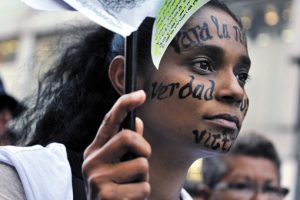
Law and Reconciliation in Colombia
Ultimately, the success of any peace agreement between the Colombian government and the country’s largest guerrilla group, the Fuerzas Armadas Revolucionarias de Colombia (Revolutionary Armed Forces of Colombia—FARC), will hinge on reconciliation. A successful process of reconciliation requires finding the balance between defending the rights of victims and gaining the trust of former combatants—members of … Read more
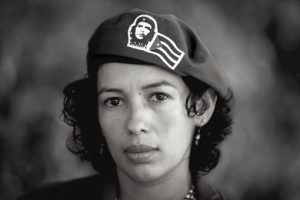
Colombia and the War in the Eyes of the FARC
Haz click aquí para leer una versión de este artículo en español. In August, the 27th round of negotiations between the Colombian government and delegates from the Fuerzas Armadas Revolucionarias de Colombia (Revolutionary Armed Forces of Colombia—FARC) took place in Havana. Since November 2012, both sides have been negotiating behind closed doors to search for ways … Read more
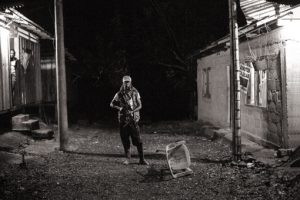
The ELN’s War
The recent 50th anniversary of the Ejército de Liberación Nacional (National Liberation Army—ELN) led journalist Ramón Campos Iriarte to the jungles of Colombia’s western Chocó province, where open war between guerrillas, government forces and paramilitary groups has been escalating. The ELN—self-defined as a Marxist-Leninist organization influenced by liberation theology—was created on July 4, 1964, in … Read more
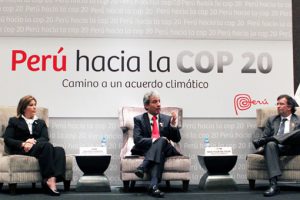
Climate Change: COP 20 in Peru
As host of the upcoming United Nations Climate Change Conference in December, Peru has assumed a challenging burden. Ministers and high representatives of 195 countries and international organizations, along with roughly 15,000 visitors, will gather in Lima to mark the 20th annual session of the Conference of the Parties (known as COP 20)—the governing body … Read more
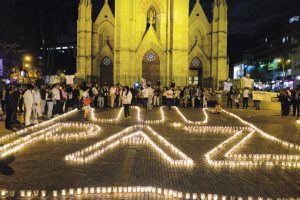
Constructing Peace: How the Private Sector Can Help
Colombia finds itself at a watershed in the country’s history. With the possible end to over half a century of violence, a new peaceful future beckons. But Colombia’s much-desired peace will not just fall from the sky. It will have to be built by all Colombians through an arduous, perhaps decades-long process. We have come … Read more
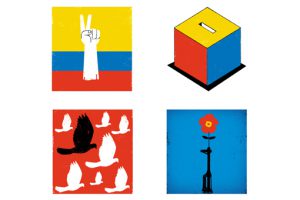
The Myths of the Colombian Peace Process
From its very beginning, Colombia’s peace process has aroused enormous expectations, not only within Colombian borders, but also in the international community. The negotiation is, in good measure, the result of the “Policy of Democratic Security” adopted by President Álvaro Uribe Vélez during his two terms (2002 to 2010), which helped limit the Fuerzas Armadas … Read more
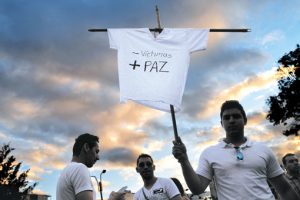
Ask the Experts: Colombian Peace Process
Clem McCartney answers: Colombia has already had the foresight and wisdom to analyze the experience of other countries in bringing internal conflicts to an end—including South Africa, the Philippines and Northern Ireland. As I write, representatives of the conflicting parties in Northern Ireland have just finished meeting Colombian government and FARC negotiators. Perhaps the immediate … Read more
Bolivian Ombudsman Denounces Increased Violence Against Girls
Bolivian Ombudsman Rolando Villena voiced his alarm yesterday at the recent uptick in sexual violence against women, and particularly young girls, in the wake of the rape and murder of a four-year-old girl last week in the town of Palos Blancos. This attack follows the death of a five-year-old girl in the Cochabamba region who … Read more
Monday Memo: Ecuador Amendments — P&G Tax Fraud — Brazil Solar Parks — U.S. Midterm Elections – Colombia Paramilitary Sentenced
This week’s likely top stories: Ecuador’s National Assembly dismisses referendum on controversial constitutional amendments; Argentina suspends Proctor & Gamble for fiscal fraud; Brazil grants contracts for 31 new solar parks; U.S. gears up for midterm elections and immigration reform; Colombian court sentences AUC paramilitary leader to 8 years. Ecuador’s National Assembly Strikes Down Referendum on … Read more
Monday Memo: Brazil Elections – Uruguay Elections – Citgo Petroleum – Protests in Haiti – Chiquita
This week’s likely top stories: Brazil’s President Dilma Rousseff is re-elected; Uruguayan elections move to a second round; Venezuela scraps the sale of Citgo Petroleum; Haitians protest a lack of elections; a Brazilian consortium acquires Chiquita. Dilma Rousseff Re-elected President of Brazil: Brazilian President Dilma Rousseff was narrowly re-elected on Sunday in a runoff election … Read more

Policy Updates
A snapshot of policy trends and successes in the region.
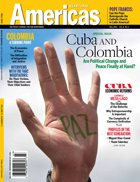
Cuba and Colombia
Articles: published article?1 A Skeptic’s View on the “Peace Dividend” by Alberto Bernal The economic benefits are neither direct nor certain. The Obstacles to Political Integration Post-Peace by Juanita León The obstacles to political integration. Full text available. Law and Reconciliation in Colombia by Rodrigo Uprimny Yepes and Nelson Camilo Sanchez Here’s how to achieve … Read more
Ecuadorian Minister Denounces Human Rights Watch Report
In a televised interview Tuesday, Ecuador’s Minister of the Interior, José Serrano, denied allegations of torture and police abuse detailed by a Human Rights Watch (HRW) report released on Monday, calling the report one-sided and an attack on progressive governments. The HRW report details police brutality that took place on September 17 and 18 when … Read more
UN High Commissioner Calls for Release of López
On Monday, UN High Commissioner for Human Rights Zeid Ra’ad Al Hussein called for the release of Venezuelan opposition leader Leopoldo López and former mayor of San Cristóbal Daniel Ceballos, as well as other prisoners detained over protests in February. Commissioner Zeid stated yesterday that “the prolonged and arbitrary detention of political opponents and protestors … Read more


